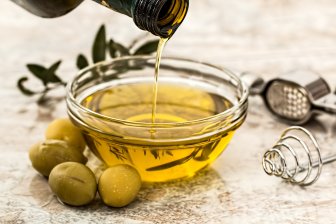
WHAT WE HEAR OFTEN : Myth or Fact?
“Olive oil is great for the heart, it controls cholesterol levels and if getting on a healthy diet is what you are thinking about, you got to switch to extra virgin olive oil”.
I am sure you are told this often and though most of us can’t remember who told us or when, this is surely one health message that has got through. Unfortunately, when it comes to food, we easily get carried away by (mis) information which may not always be based on facts.
Here’s my top three facts about Olive oil vs Indian Traditional Oils that all should know-
FACT 1- VIRGIN OILS ARE NOT “NEW” BUT HAVE BEEN AROUND SINCE ANCIENT TIME IN INDIA
Cold pressed or virgin oils have lately found a place in all health stores globally, where as we, in our country, have been consuming it for centuries. Just that we didn’t give a fancy name to it and market its benefits. We called it ‘kacchi ghani oils’. Traditionally, communities of oil pressers or “telis” as they are called, crush oilseeds to make cold pressed or virgin oil under lower temperatures that will not degrade the oil. Its nutrients, flavor, aroma and color is hence retained. Unlike industrial refining, this process does not use any solvents or chemicals.
FACT 2 – IMPORTED EXTRA VIRGIN OLIVE OILS AREN’T EXTRA VIRGIN
In 2010, the University of California reported that most imported extra virgin olive oils aren’t extra virgin.
UC DAVIS REPORT, 2010: “MOST IMPORTED EXTRA VIRGIN OLIVE OILS AREN’T EXTRA VIRGIN”

Oils that are made and labelled as extra virgin in one continent or country, loses its freshness, nutrients and qualities by the time it is imported and sold in another country. It is plain foolish for us to simply pick up these labels off the shelves. The local small mill or ghani that makes filtered oil after simply crushing the local oilseeds you give them is the freshest and the most virgin heart healthy oil that you can get for yourself.
FACT 3 – USE FILTERED, LOCAL NUT-BASED OILS BASED ON WHERE YOU COME FROM
In India, since thousands of years, the oil our grandmoms have been using is largely dependent on where they came from. In Kerala, it’s coconut oil, in Andhra and Rajasthan, it’s the sesame oil, mustard oil is used in the east and north India and in Maharashtra, Gujarat and central India groundnut oil is used. Diverse cultures eat differently and the type of oil fitted beautifully into the food landscape of that region.

Then somewhere in the 1980s, we were told that our oilseeds are bad for our heart and we were quick in switching to refined vegetable oils and virgin olive oil. Now fats are making a comeback and coconut has already been hailed as the superfood in the west. Fat loss, heart health, immunity, glowing skin, strong bones, shining hair – coconut oil has been linked to everything good. But its just not coconut, all our indigenous oilseeds be it mustard, groundnut or sesame are rich in antioxidants, essential fatty acids, phenols, vitamins and minerals. Just that the West has not yet woken up to its heart health and weight loss benefits. Moreover, unlike olive oil and vegetable oils, these oils blend better with our Indian cuisine. They have high smoke points which means their nutrients and qualities are retained and not lost at a higher cooking temperature which is most typical of Indian cooking.
The only place where it then lags is probably marketing. Neither it gets support from the government, nor gets endorsed by celebrities or gets advertised in fancy packing with health claims.
NOTE:
Traditional oil press/ kachhi ghani run by motor or bullock to make locally produced cold pressed/ filtered/ virgin oils is a living legacy. Now in danger of shutting down, we can help support it by taking their highly skilled service.
Confused by the misinformation about potential health problems with traditional Indian foods? Get in touch with well-known Mumbai dietitian and nutritionist, Munmun Ganeriwal, a strong advocate for the holistic wellness benefits of fresh, local, and traditional Indian foods.
